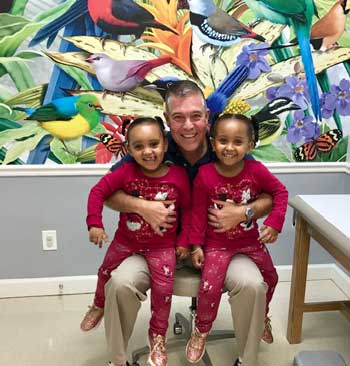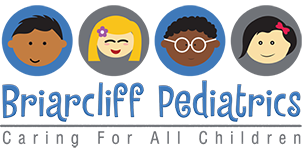What is RSV and How Does It Affect Your Infant and Children?
- On Apr, 04, 2024
- Doctor Notes
- Latest News, Well Child
 Coughing, sneezing, sore throat, difficulty breathing—during this time of year, it’s easy to associate these symptoms with the common cold or asthma. However, there may be another culprit responsible: Respiratory Syncytial Virus, or RSV.
Coughing, sneezing, sore throat, difficulty breathing—during this time of year, it’s easy to associate these symptoms with the common cold or asthma. However, there may be another culprit responsible: Respiratory Syncytial Virus, or RSV.
RSV is a highly contagious respiratory virus that shares many symptoms with conditions like asthma and the common cold, making it difficult for parents to distinguish between these illnesses. Considering that almost all children will contract RSV, we felt it necessary to dedicate some time to educating parents and caregivers about RSV, its symptoms, how it interacts with other conditions, and ways to protect against infection. This month’s blog will focus on the major symptoms of RSV and some strategies you can use to keep yourself and your children healthy this spring and onward.
Major Symptoms of RSV in Children:
RSV is most prevalent during late fall and early spring and spreads most commonly through coughs and sneezes with an infected person. It may also be acquired by contact with dried infected respiratory secretions such as shared hard surfaces and even bedding. In children under the age of 1, RSV is the main cause of hospitalization. However, these stays are brief, with most children returning home within a few days.
In healthy adults and older children, RSV usually produces mild symptoms; however, in infants, RSV can be severe.
Typical RSV symptoms found in older children include:
- Runny nose
- Coughing
- Sneezing
- Inflamed eyes
- Fever
- Wheezing
- Sore Throat
- Headache
In infants, RSV symptoms may be more severe and can include:
- Difficulty breathing
- Rapid, short, or shallow breathing
- Wheezing
- Lethargy
- Irritability
- Decrease in activity and/or appetite
RSV can also trigger an asthma attack in asthmatic children, so you and your asthmatic child must follow your asthma action plan if RSV is contracted. If you have an asthmatic child, be sure to check back for our next blog, where we discuss the similarities and differences between RSV and asthma.
While RSV doesn’t typically require lab tests for diagnosis, there may be certain cases where your child’s Pediatrician will perform mouth or nasal swabs to confirm infection. However, this is rare, as Pediatricians can diagnose RSV through a physical exam.
Protecting against RSV:
There are several precautions you and your family can take to protect against RSV:
- Good Hygiene: get into the habit of washing your hands after using the restroom, before meal preparation, and prior to eating.
- Disinfect Surfaces: regularly disinfect your child’s toys and other surfaces such as tables, doorknobs and handles, counters, and other surfaces that are frequently used.
- Vaccinate: You have the choice of vaccinating against RSV during pregnancy or after the birth of your child. During pregnancy, mothers can vaccinate between 32-36 weeks. If mothers decide against vaccination during pregnancy, infants can be vaccinated if they are born during RSV season.
Everyday preventative measures coupled with vaccination can help reduce the chance your child will contract RSV, so you don’t need to be fearful. At Briarcliff Pediatrics, we take the health and well-being of your child seriously, and we strive to set parents’ minds at ease. If your child is showing any of the symptoms we discussed today, and you’re unsure whether or not it is RSV, contact our office for an immediate care visit with Dr. Raymond Deeb or Dr. Rebecca McCoy where we can usually see you the same day. If you have any questions about RSV or would like to vaccinate your child against RSV, contact Briarcliff Pediatrics to schedule a well child visit. Don’t forget to follow us on Facebook and Instagram for the latest news and health tips.




